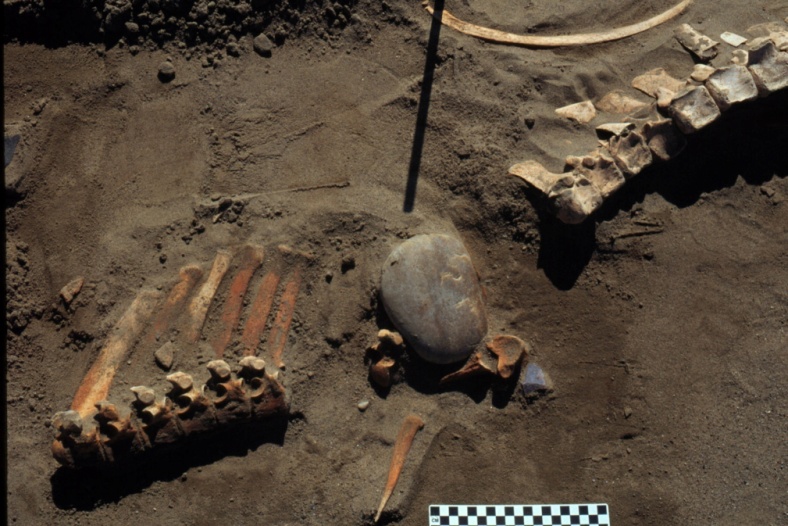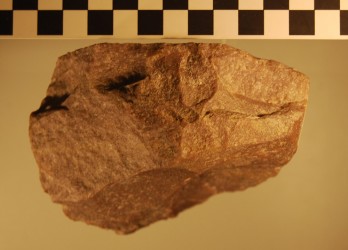Prehistoric humans hunted in Canada about 300 years earlier than thought

Bones of a prehistoric horse found near a Canadian reservoir points to evidence that humans migrated to North America earlier than previously thought, according to a new study published today. Image: Michael Waters, Texas A&M University | Download image
During the Ice Age, humans hunted for horses and camels in North America about much earlier than previously thought, a research team led by a Texas A&M University anthropologist now says.
The focus of their research is the remains of seven horses and a camel found in a riverbed near Calgary on the rolling prairies of Central Canada, which was a hunting ground for prehistoric people.
Using radiocarbon to date the remains, researchers found the animals were killed about 13,300 years ago. This means that humans were hunting in the region at least 300 years earlier than previously believed.
Mike Waters from Texas A&M’s Center for the Study of the First Americans at Texas A&M collaborated with peers from the University of Calgary and Aarhus University in Denmark. Their latest work is published in the current issue of Proceedings of the National Academy of Sciences (PNAS). The North Star Archaeological Research Program and the Chair in First American Studies funding the project.
Waters said, “Our study shows that these early hunters were in this area long before Clovis inhabited the region, which were once thought to be the first hunters in this part of the world. This study adds more information about the earliest inhabitants of North America and the role human hunters played in the extinction of large mammals at the end of the last Ice-Age.”
News coverage:
* PBS NewsHour: Prehistoric hunt suggests humans arrived in North America earlier than previously thought
* CBC News: Alberta camel-hunting site points to mysterious prehistoric people
Additional image:

A core tool that researches associated with how the hunters dismembered the camel. Image: Michael Waters, Texas A&M University | Download image

